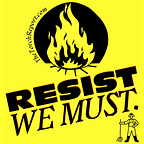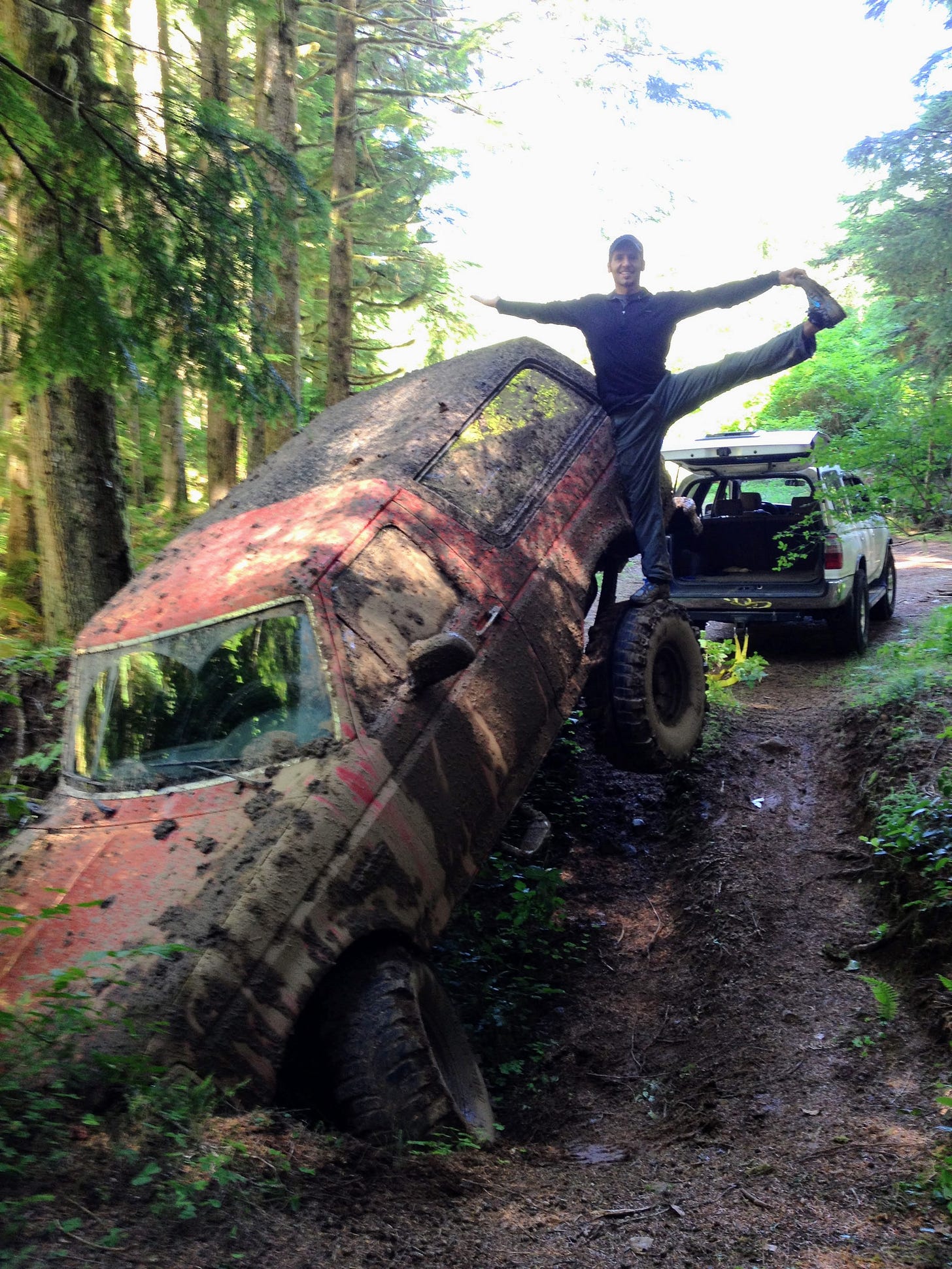Breathe deep.
This morning, as I was walking to the office, I stopped.
I took a deep breath of the frosty morning air, stood silently in the fog and listened. There were turkeys gobbling down the hill, coyotes yipping in the distance, the delicate crunch of deer stepping through the light skiff of snow.
As the rooster crowed and I took it all in, gratitude welled up inside.
Life is good. Life is great!
I need not plug into the net, to grasp the profound beauty of the world around me. Indeed, it is in the unplugged moments like this that I find a deep sense of grounding in the fundamental goodness of life. For just a moment, the world’s problems fall away, like a weight being released. It’s all going to be okay.
As I’ve said often lately, this too shall pass.
The intensity of chaos, the uncertainty and stress, the psyops, propaganda, and relentless pilfering and abuse of We the People—this too shall pass.
Just breathe. It feels good, and it’s good for you. That’s what I tell myself.
That’s what I know to be true. It’s a lesson I’ve learned the hard way, having struggled through a great deal of pain and turmoil in life, most of it self-induced.
When I was waiting for the VA to amputate my foot, I felt trapped inside a broken body. No longer was I an invincible young man, capable of conquering the world. For a period of time, I wasn’t even capable of taking the trash out for my wife, teaching my kid to ride a bike, or functioning in the way I always had. That was hard.
This physical challenge inevitably took its toll on my mental and emotional state. My mind was often reeling through the long list of things that were far beyond my control. Then, one night, with tears of despair streaming down my cheeks as I laid in bed and wondered how I could ever be the husband and father I sought to be in such a banged up and broken down state, something snapped.
I rolled out of bed onto the floor and started doing pushups. Pushing myself to the point of collapse, I rolled over and started doing sit-ups. I repeated this process until I passed out from physical exhaustion. I was in charge of my life.
Not my pain. Not my broken body. Not my whining mind.
ME… that inner me… the real me. This was an awakening of the spirit within, and with it came the strength and determination to rebuild my life, mind, body, and soul. Though there were many, many things beyond my control, there were also many things that were within my control. The truth is, there always are.
Most important, I slowly learned the ability to regulate my breath.
After purchasing a small library of books on yoga, tai chi, and breathwork, and studiously applying the lessons on every page, I eventually gained a very deep appreciation for just how powerful these tools are—not just for pain management and physical rehabilitation, but for the stress reduction and mental rehab as well.
The wisdom is this: no matter what I’m experiencing, don’t forget to breathe.
Controlling the breath interrupts the mental chatter. It elevates inner awareness, allowing space to observe the physical and emotional state. How am I feeling, and why? Where am I holding tension, physically and emotionally?
Where do I need to let go?
Over the course of several years, I trained myself to operate from this new default mode. No longer did I have to be spun up, wound tight, ready to fight, and function in survival mode. Even when dealing with a great deal of pain and stress, I could still maintain composure and calm, because I knew I was still in control of my breath.
It may sound silly, or unimportant, or irrelevant to geopolitical chaos, this hippy-dippy journey of healing, self-discovery and learning, but I assure you it’s highly applicable.
Hold tight and I’ll tell you how, but first, I want to share the hardest lesson of all.
Learning to let go.
As I stood on the hill this morning, taking it all in, I realized I was holding a great deal of tension in my shoulders, particularly in my left shoulder. It was shrugged up and tight, like I was bracing myself for a broadside impact. I took a deep breath and relaxed. Then I noticed a lot of tension in my hips, particularly my right hip.
Again, I took a deep breath and relaxed.
The turkeys gobbled. The coyotes yipped. The rooster crowed.
I took a few more breaths, consciously scanning my body for any unnecessary tension, intentionally releasing the areas where I was unconsciously tight. In short, I was letting go, in a systematic fashion, just like I’ve done a million times before.
All at once I was simply standing, being, and taking it all in. I was absorbing the moment, as opposed to being absorbed by the thoughts of what must be done.
Moments like these are priceless, and they yield great dividends.
Clarity. Focus. Knowing. Relaxation and a sense of ease, a sense of peace.
These are all desirable qualities, are they not? Indeed they are, and the good news is, clarity, focus, knowing, peace, and relaxation can all be cultivated, intentionally, even in the midst of chaos. Learning to let go and ground yourself in this mental state is a lot like learning to stand calmly in the eye of the storm. It’s a valuable life skill.
But it’s not easy to let go, especially mentally. The degree to which we hold tension throughout our bodies, most often without even realizing it, is easily eclipsed by the subtle, stubborn tensions that accumulate in our minds.
We often hold onto thoughts with a death like grip, not realizing that doing so eats up a great deal of mental resources, causes a great deal of stress, and ultimately hinders our ability to function and feel at our best. We are psycho-somatic creatures, which means this mental gripping, holding onto these thoughts whether we realize it or not, inevitably has a major physiological impact.
Stress. Confusion. Frustration. The coping and self-medication that comes with it.
All of this drains energy and eventually leads us to short circuit. It’s just the way we’re wired. Slowly but surely, the mind begins to shut down certain faculties—say like high-level critical thinking and long-term planning for example—in order to maintain the grip on thoughts that often no longer serve us.
I know that’s pretty deep for political commentary, but let’s see how it plays into the ongoing war for the hearts and minds of humanity, shall we?
Let’s zoom out.
As discussed in TR 556 - How to Plan Ahead When All Roads Lead to Hell, long term planning is absolutely essential if we intend to overcome the onslaught of the commie global cabal. The reasons for this are mostly self-evident, given that their incessant scheming has been decades in the making and we are playing from way behind.
For many people, myself included, the pandemic shook us awake to the fact that the world was not what it seemed. Prior to the pandemic, politics were predictably hectic, but for the most part things were pretty hunky-dory. The politicians were going to do their politicking, and the people were going to dutifully go about their daily lives.
Very few would have ever suspected that dark forces were gathering power and plotting to take over the world—though in all fairness, there have certainly been vigilant citizens who’ve seen all of this coming for a very long time.
For some people, the wake-up was 9/11. For others, it was 2008. Still others found their awakening stimulated by other geopolitical factors, but the awakening always comes from reality crashing into the cozy comfort of predictable routines. In other words, we wake up when circumstances demand that we do so, when things go so horribly awry that our attention on daily life gets interrupted—that’s when we pick up our heads, look around, and ask the proverbial question:
What the hell is going on around here?
How did we get to this point? How do we get out of this mess?
Here it’s important to realize that such questions can arise and be applied to various vectors in life. For example, years ago I was imbibing with a buddy and sometime after midnight we decided to go rallying through the forest in search of a mud bog. Around 2am, we find ourselves in a rather precarious position, asking these very same questions: how did we get to this point, and how do we get out of this mess?
We pondered the questions for hours as we walked through the dark woods in search of our campsite. By dawn, the answers had come clear. One thing had led to another and we’d found ourselves in a ditch:
Fortunately, it was nothing a tow-rope couldn’t handle.
Now, on a more serious note—and by the way I wasn’t driving—when geopolitical chaos comes crashing through our personal realities, as it did with the pandemic, the answers to our questions are seldom as easy to find as a tow-rope. Solutions seem elusive at best when we realize the forces creating our problems are way beyond our control.
BUT HERE’S THE THING:
Rather than letting go of what was, the past, when the world gets turned upside-down, human instinct is to hold onto what we know and cling to what we have for dear life.
The globalists know this, and they exploit the fact to their advantage by creating a cascading series of “iterative disruptions” that serve to keep up clinging to the past.
Unfortunately, this prevents us from reconciling with the facts at hand—how in the hell did we get here?—and then hampers our ability to think through how best to move forward. How do we get out of this mess? In essence, we get caught up in a reactionary loop, putting out the dumpster fires while the global arsonists proceed to set the world ablaze.
Put differently, our world becomes small and our focus switches to survival mode, taking care of me and my own, stocking up on goods and resources in order to survive the next great threat—all while the enemy is steadily advancing on all fronts, stealthily circling our position, and plotting their next attack.
It’s kind of like digging a foxhole when you’re surrounded by a battalion of tanks.
Nice idea. Ain’t gonna do much good.
What we need to realize is that the vast majority of people are living their lives with their heads down, dealing with the daily, and only asking the questions how did we get here and how do we fix this within the context of surviving the workday and making it to the next paycheck. This is all perfectly normal, we just need to acknowledge it.
The implication is that it becomes incumbent upon us, upon those whose eyes are wide-open to the bigger picture, those who have lifted their gaze and begun to ponder long-term strategies, to let go of what was, embrace what is, and fight with all our might to preserve the blessings of liberty for future generations.
We must forge a new path forward, and to do so, we must simultaneosly let go of disbelief and despair. We must let go of the what-ifs and the maybes. We must let go of the uncertainty and unknowing. We must focus on the gift of the present, take hold of what is certain and true, and move forward on our mission without fear.
We must dig deep to overcome the evils of our time, but I believe the spirit of freedom is unyielding. We will win this war. Fight with joy. This too shall pass.
Just don’t forget to breathe!















